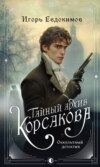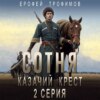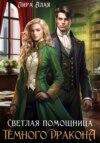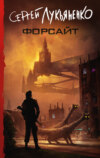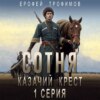Читать книгу: «Sweet Mace: A Sussex Legend of the Iron Times», страница 6
He took off his broad-brimmed soft hat, and wiped his brow as he looked at both in turn, while Mace went off for the ale.
“Ay, it is hot, Master Peasegood; but it will be hotter in yonder directly. Come and see the casting.”
“Not I,” said the new-comer: “I’ll go and sit in the shady room, and hold discourse with fair little Mace, and the ale. I shall stay to the next meal, so you need not hurry,” he added, to Sir Mark’s disgust.
“You’re welcome,” said the founder. “How is the holy father? Why didn’t you bring him?”
“Out on the malignant! I’ve done with him,” cried Master Peasegood, with much severity. “He’s all purgatory and absolution and curse. Ah, talk about cursing! So Mother Goodhugh has been at work again.”
“Ay, with all her might.”
“Hah! I like being cursed,” said the parson, drawing a long breath. “I’ve been cursed more than any man living, sir,” he continued, turning to Sir Mark. “Ha, ha, ha, ha! see how I flourish upon it. I like being cursed.”
“But you don’t like cursing,” said the founder.
“Nay, not at all,” said the parson. “Well, I’ll in to my draught of ale. Go and get you dope, and come and join me,” and, saluting Sir Mark, he, to that gentleman’s great relief, rolled slowly towards the porch, while the founder led his guest through the low arched doorway into the furnace-house, whose interior was now aglow.
Mace awaited her stout visitor in the cool, shady parlour, with the silver flagon in her hands, then lifted the lid, and held it out to him with a smile.
He took it, sniffed the aromatic scent, and raised it to his lips, with his eyes on Mace, but set the vessel down again, and took the maiden’s hands.
“Give me another kiss, child, before I defile my lips with strong liquor. Hah,” he added, after the salute, “that was as fresh as the touch of a dewy blossom at early morn. God’s blessing be on the man who wins thy love, my child, and may he make thee a very, very happy wife. Nay, nay, don’t blush, child,” he continued, patting the hand he still retained. “I am a confirmed old bachelor, and shall never wed; but I hold, as opposed to Father Brisdone – the devil take him! – that there is no purer and no holier thing in life than the love of a good man for a sweet, pure woman, unless it be the love of the woman for the man.”
“You do not drink your ale, Master Peasegood;” said Mace, blushing, and looking pained.
“Nay, my child, that can rest, for now we are on this topic of love I want to talk to thee. Come, come, look not so angered with me. You’ve grown a beautiful woman, Mace: but I seem always to be looking at my pretty, prattling babe, who brought me flowers every Sabbath day. Ah! my child, time flies apace —tempus edax rerum, as Father Brisdone would say. But hearken to me, child, I am no father confessor, but if my little Maybud did not open her sweet young heart to me ’twould grieve me sore.”
“Oh, Master Peasegood,” cried Mace, enlacing her hands, and resting them on his shoulder, as he seated himself on a chair, which groaned beneath his weight, “I have not a thought that I would keep from thee.”
“I know thou hast not,” he said. “So tell me – this courtly spark, has he said words of love?”
“Nay, Master Peasegood, but he sighs and gazes at me pensively, and lingers here as if he wished me to believe he was in love.”
“And you? What of this little heart? What think you of his gay clothes and courtly ways, and smooth manners and gentle words?”
“I think him a good-looking, pleasant-spoken gentleman enough,” said Mace.
“Ah! that will do,” cried the parson, smiling, as he gazed into the maiden’s clear, bright eyes. “That will do, my rosebud; not a quiver of the eyelids; not a blush; not a trembling of the lips. Faith, child, you’ve set my heart at ease. There, keep thine own fast locked till the good, true man shall come and knock, and ask for entrance. Then, child, open it wide, and shut it, and lock him in, never to set him free.”
Mace nodded and smiled.
“That’s only part of my errand, child; the other is about Culverin Carr, our bold captain. What of him? Aha! does that prick?”
He held the girl’s hand tightly, for she turned half away, with a pained look in her face, and the tears rose to her eyes.
“Well, and ill,” cried Master Peasegood, shaking his head. “What does it mean, child? You care for him, I think?”
“I hardly know,” sighed Mace.
“Then you do,” said Master Peasegood, nodding his big head. “There’s no doubt about such matters, child. But tell me all – you may trust me – does he know you like him?”
“Oh, yes,” cried Mace, “and my father has forbidden him to come to the house.”
“Then he has good reason for it. Jeremiah Cobbe is hot, passionate, and excited enough to carry him to perdition, but he is just. Now, look here, Mace, do you think Captain Gil is the true, good man who should be locked up in your little heart?”
“Have – have you ill news of him?” faltered Mace, who a few hours before would have scornfully rebutted any charge against the choice of her heart.
“I am no tale-bearer, child,” said the parson, sternly. “My mission is to make peace, not war. Tell me, have you doubted friend Gil’s truth?”
For answer Mace sank upon her knees, and covered her face with her hands.
“Poor child, poor child!” muttered the parson, as he laid his hand upon her glossy hair. The next instant she had started with him to her feet, for there was a sharp crash as of some explosion, and, after a moment’s pause, a bellowing, rumbling roar, which shook the building to its foundations, and then seemed to roll into the distance and die away.
How Tom Croftly took his Chastisement
Sir Mark felt in anything but the best of tempers upon finding how thoroughly at home the stout parson of Roehurst was at the Pool-house. He had taken a dislike to him from the first, and the idea of his sharing the table with them at the next meal filled him with disgust.
However, with all a courtier’s skill in hiding his own feelings, he smiled in reply to the founder’s remarks, and tried to interest himself in the process before him.
It needed little effort, for, as a soldier, he could readily appreciate the shape and make of a good piece of artillery; and, setting aside all thought of Mace for the time being, he eagerly scanned the interior of the furnace-house.
“What do you mean by all this, Master Cobbe?” he said, pleasantly. “I am sent down here to reprimand you, and give an ample report on what I see, and, after the first sharp encounter, I find you treat me as the best of friends. You give me your daughter’s society; you talk to me of your works; and now you are about to show me the secrets of your trade.”
“And welcome,” cried the founder, bluffly. “See all, learn all, and tell all, for I have nought to conceal. My powder is good, and my guns are good; but that is from skill, of which no one can rob me, or take away. Any man can make powder or cast cannon, but few can do these things well. There, my lad, once for all, don’t you shrink from making what report you will. You will not offend me. But come, we are about to begin.”
Sir Mark glanced round at the bright glow which lit up the whole place, and then at the furnace-mouth, from whose chinks a dazzling white light shone out, seeming to cut the darkness with long, thin rays, which struck the wall and the smoke-blackened, oaken beams that supported the roof, while it illumined the floor sufficiently to enable the visitor to see the dim figures of a couple of men, who were busy stooping over something in the middle of the building.
This he felt was the mould, and into it he knew that ere long the furnace-door would be vomiting the molten metal in a dazzling state, so bright that his eyes would hardly be able to bear the glare. He did not speak, for the roar made by the vast bellows, whose air was burning away the impurities of the iron, was almost deafening, and he could see that a good deal of the work was earned on by signs.
“A good time for a tête-à-tête with little Mace,” he muttered, as he saw the founder slip off his doublet and roll the linen shirt up over his muscular arms. Then the knight took the place pointed out to him as one likely to be out of harm’s way, and watched with eager interest the busy scene around.
Now the furnace was being urged to greater heat, and the vivid flames and sparks rushed out into the sunshine; then the founder was seen to stand right in the intense glare, and evidently throw in some ingredient upon the molten metal which seemed to seethe and bubble, and rise in the furnace as if about to overflow, while dazzling flames of violet, orange, and silver-white danced over the molten mass, and formed, with the silvery scintillations, a scene that riveted the courtier’s eye.
As he gazed upon the weird-looking figures, half glowing in the light, half-hidden in the darkness, or others whose heads or bodies alone were seen in the strong glow of the furnaces, there was an unreality in the scene that sent a thrill through him.
“I would that big-tongued Jamie were here,” he muttered, “coming upon it all by night and gazing in at yon window; he’d think he had come upon a demon’s feast, and that the saints of Pandemonium were cooking hell-broth for all the witches and wizards of the land.”
A shout from the founder roused him from his musings, and he shaded his eyes with his hands, and watched the furnace, whose light now grew more silvery every moment, and whose fluttering flames seemed to be more full of wondrous dyes. The light was sharper and more defined, and in the darkness below, where there were tiny points of light, shewing that there were crevices in the firebricks, Sir Mark could make out the figure of the founder standing with a great iron bar in his hands.
Suddenly a door was opened, and the founder was seen to be plunging the long bar into the molten metal, when once more vivid beams of light flashed out, mingled with coruscations of sparks, which darted here and there in fierce battle as if contending together, exploding with a loud crackling noise as they met.
Then once more the door was shut, and Sir Mark closed his eyes, which ached with the glare. The moment after he opened them to gaze upon the weird scene, as one after the other there came a series of loud strokes as of iron upon iron, and then from a bright star in the middle of the darkness, low down near the floor, a stream of pure liquid silver seemed to run, passing rapidly along the floor and suddenly disappearing.
Quicker and quicker it seemed to gush out, with dazzling flames dancing over it as it sped along. The whole building now was glorious with light, and seemed transformed; beams, rugged stone walls, flooring, all were glistening as if suddenly coated with silver and gold; and as, with parted lips and eager eyes, the founder’s guest gazed upon the scene, and thought of how glorious was a cannon’s birth, there was a sudden crash as if heaven and earth had come together; he was struck backwards, hurled as it were against the wall behind, and then, finding himself close to a window-opening, half fell, half dropped out into the open air to stagger away amidst the débris of broken tiles and wood that had fallen around.
He knew he was not hurt, but he felt confused and dazed as men from various parts ran up, women from the distant cottages came shrieking, and the occupants of the furnace-house, now roofless and smoking, staggered out panting and blackened, to look eagerly round at one another.
“My father – where is my father?” cried Mace, running up wild-eyed and pale.
There was no reply, and, without a moment’s hesitation, she ran over the broken fragments of stone and wood lying about, to the arched door, and stepped in amidst the blinding smoke and reeking steam.
“Stop! oh, stop,” cried Sir Mark. “Good heavens, men, she will lose her life.”
Roused by his words, a couple of the men ran after the excited girl, but only reached the door as the founder came out looking blackened and half stunned, leaning upon his daughter’s arm.
“I can’t see any one there,” he cried, as soon as he was out, and he began looking round at his men. “Are you all here, my lads?”
The men gazed at one another as if for the first time it had occurred to them that they ought to count their number, and at last, as Master Peasegood repeated the question, out of breath with his exertions to get there, some one exclaimed:
“We be all here, Master.”
“Then help me to a flagon of ale, Mace,” cried the founder.
“But father, dear, you are hurt; you are burned. Quick, some one, help get him to the house.”
“Nay, nay, child, I’m not much hurt, and, as no one else is, loose my arm. Where’s that Tom Croftly?”
“Here I be, master,” said a gruff voice, and a grim, half-naked man, with the chest of a giant, came trembling forward, wiping the reek and sweat from his brow.
“You clumsy, bull-headed fool,” roared the founder, dashing at him and delivering so sturdy a blow from his stalwart arm that the man staggered back, tried to recover himself, and then fell heavily, to sit up slowly the next moment, applying his hand to his cut forehead and gazing meditatively at the blood.
“You bean’t going to stand that, Tom Croftly,” whispered one who was bending over him. “Get up and pook him well, if you bean’t a coward.”
The foundryman gazed in Abel Churr’s foxy eyes, and shook his head.
“Nay, nay, the master’s right enough, though he did hit hard. I ought to ha’ looked after the trade.”
“What are you doing there, Abel Churr?” cried the ironfounder. “Here, Mace, lass, fetch me that ale.”
“What am I doing here, Mas’ Cobbe?” said the adder-hunter, as Mace ran off, satisfied now that her father was not hurt. “I heard the blowing up, and I knew some one would be burned, so I came. You’ll want a bit of adder’s fat for them burns, Mas’ Cobbe.”
“Out with thy trash!” cried the founder, angrily. “Here, you Tom Croftly, rise up and I’ll smite you down again.”
The great fellow began to rise slowly, with the obedience of a dog, but the parson interposed: —
“Nay, nay, Master Cobbe; thou hast done enough beating.”
“The master’s quite right,” said the foundryman; “I ought to have looked after the trade.”
“Right! Yes, you dolt!” cried Cobbe, angrily. “Have I not told you all a hundred times that every mould must be quite dry? and here you let me run the iron into one that must be half full of water.”
“I see to it all two hours ago, master,” said the foundryman; “and it was bravely dry, but I ought to have looked again, only somehow Mother Goodhugh coming put it out of my head.”
“And what did Mother Goodhugh come to you for?” said the founder, angrily.
“She come to help me to something for my little one who’s a bit weak this last month, master.”
“If you want to see Mother Goodhugh, you go to her,” cried the founder. “But for a chance, half of us might be lying stiff and cold – nay, parson, stiff and hot, roasted and scalded, and cooked by the iron and steam. There, get to work and clear up, and we must have all put to rights again. Tom Croftly, you’ve put a hundred good pounds out of my pouch through not seeing to that mould.”
The great foundryman rose up now, nodding and shaking his head, while his master turned to his guest.
“I never thought any more about you, Sir Mark,” he said. “Not hurt, I hope,” he continued, taking the flagon from Mace, and drawing up the lid with a clink; “Here, take a draught of this.”
“More frightened than hurt,” said Sir Mark, taking the flagon, bowing to Mace, and raising it to his lips.
“It was startling,” said the founder, grimly. “I say, squire, you can put that in the report to His Majesty. Ha, ha, ha!” he continued, after a pull at the ale. “If he had been here he’d have thought all the witches in Christendom had come about his ears, and here’s Mother Goodhugh again.”
There was a buzz in the little crowd, as the old woman came near to climb upon a heap of furnace-cinder, and stand pointing to the disroofed shed, mouthing and grinning maliciously.
“Cursed,” she cried; “cursed, all cursed. Bide and rest, all of you, and see how all I say will be fulfilled. Ha, ha, ha! How the wicked fall!”
“Nay, they don’t,” cried the founder, “or thou’d’st come down off that furnace-glass. Get thee home for a foul venom-spitting toad,” he added, angrily. “Come, Mace; come, Sir Mark, I can’t contain myself to-day if she begins to play Shimei and throw her stones.”
As he spoke, he took his daughter’s hand, and walked away, leaving Mother Goodhugh gesticulating, talking to the workpeople, and prophesying evil against the house of Cobbe.
Master Peasegood stood listening to her for a few moments, and then turned to the knight.
“As well try to stop a running stream, sir,” he said, quietly. “If I dam it in one place it will break out elsewhere. She must run until she’s dry:” and he followed the founder into the house.
How Gil signalled in vain
Gil Carr proved to be a sorry companion to fair, weak, amorous Mistress Anne after the encounter with Mace Cobbe; but it troubled the maiden very little, for she was in a kind of ecstasy. She had gone, half doubting, to Mother Goodhugh, and the old dame’s teachings had proved a great success. For long enough her heart had been set on bringing the captain to her feet, for there was something romantic and dashing in his career. To her he was a perfect hero of romance, and she dwelt in her privacy upon his exploits, of which she had often heard. Then her jealous torments had been unbearable; and half in despair, half in harmony with her superstitious nature, she had had resort to the wise woman, and ended by abusing her for her want of success.
The coming of Sir Mark had turned her thoughts into a different channel, and she felt ready to oust Gil Carr from her heart. Then to her dismay she found even him gradually being drawn beneath Mace’s influence; but now all had turned in her favour: Gil had wooed her, held her in his arms, and, better still, been seen in this position, while Mace was with Sir Mark.
“She may have him and welcome,” cried Anne, with her old passion for Gil reviving moment by moment, as she felt now sure of gaining the dearest object of her heart. It was to her, then, nothing that Gil seemed cold and distant when he parted from her near her father’s house, that must needs be she felt as she warmly pressed his hand; and then with cheeks flushed with hope, and joy in her heart, she hurried home full of faith in Mother Goodhugh, and ready again to seek her aid.
Gil was in a very different frame of mind as he strode away, and had not gone far before he saw before him the broad proportions of Parson Peasegood, whom he remembered now to have seen crossing one of the fields as he was walking with Mistress Anne.
“Ah, Master Peasegood,” he cried, glad of something to divert his thoughts for the time being. “Well met. Here is what I promised you.” As he spoke he took from his pocket a couple of short, clay pipes, and a little linen bag. “Use them with care, and don’t become tobacco’s slave.”
“I thank you, captain,” said the stout parson. “I will become no slave, but since his Majesty has written so much about the Indian weed it has begotten an itching in my sinful soul to know what it is like.”
“I see,” said Gil, smiling. “Well, that is Indian weed from Virginia. Shred it up fine with your knife, press it into the pipe, and then hold to it a light, and draw the smoke through thy lips, swallow it if thou canst, and then drive it forth through thy nostrils.”
“Hold there!” said the parson, with his eyes twinkling. “I’ve watched it all, my good lad. I’ve seen Master Wat Kilby smoking away like one of friend Cobbe’s furnace-chimneys, and I’ve seen Master Cobbe himself lie back in his chair and fume and dream, and I would fain have tried myself, for how can I condemn the sin with a good conscience if I do not know how evil it may be?”
“True, sir,” said Gil, laughing; “and we all have our weak points.”
“Even to playing fast and loose with ladies’ hearts, Captain Gil,” said the parson, with a peculiar look.
Gil’s eyes flashed as he turned sharply round and faced his companion, who was about to lay one of his fat hands upon his arm; but the young man felt so irritable and unfit to listen to the other’s words that he drew back, ran up the bank, and plunged at once into the forest, crashing through the undergrowth until he struck a faint track, and then winding in and out through the dark arcades for a good hour till he reached a deep ravine, down whose bottom he made his way, along the border of a little stream which trickled over the huge masses of sandstone from pool to pool, each of which held its half-score of trout ready to dart beneath the overhanging stones and under the roots of trees, to their little havens of refuge, till the interrupter of their solitude had passed.
After an hour’s walking he came to a spot where the stream widened out a little, and he gave a nod of satisfaction as, fifty yards in front, he saw the tall gaunt form of Wat Kilby wading in the pools, and stooping down from time to time beneath the overhanging stony banks to thrust in his hand, and more than once retire it with a glistening speckled trout, which he thrust into a satchel hanging beneath his arm.
The old fellow straightened his back and nodded, as the captain came up to seat himself upon a stone.
“Well, skipper,” said Wat, counting the trout through the canvas of his wallet.
“Well,” said the other. “I am afraid some folk have found out the store.”
“Not they,” growled the old fellow. “How could they?”
“I went up awhile ago, and saw half-a-dozen of the men with a lady whom they had found sitting on a stone in the narrows.”
“Yes, I know,” said Wat.
“You know?”
“Yes; I saw Mother Goodhugh take her up there with her eyes shut, and leave her on the stone.”
“You saw her?”
“To be sure,” growled the old fellow; “and I watched her till the lads come and took her, and you ran up.”
“And you didn’t interfere?”
“There was nothing to interfere about, skipper, and I thought it best for her to be frightened. Keep her from going again.”
“Did she go up higher?”
“Not a step.”
“Nor Mother Goodhugh?”
“Not half a step.”
“Why did she bring her there?”
“Hocus pocus. To scare her, to make her mutter charms or something. It was the out-of-the-way-est, ugliest place the old woman knew, so she took her there.”
“Do you think that’s the case?”
“To be sure. Mind you, I shouldn’t be surprised if Mother Goodhugh did get to know about it, either hunting herself or through that long, lanky, lizardly fellow, Abel Churr.”
“If Abel Churr did find out, and tell tales, I’d hang him to the yard-arm of our ship.”
“And bless the world by so doing,” said Wat, grimly. “Twenty-one,” he added, softly.
“What’s twenty-one?” said Gil, sharply.
“One-and-twenty trout,” replied Wat, who had finished his counting.
“Hang your trout!” cried Gil, impatiently.
“No; hang Abel Churr,” said Wat; “for he’s a lazy, sneaking, mischief-loving reptile. I’d like to put the rope around his neck.”
“Now go,” said Gil, sharply. “See the lads and get them together. We’ll have those stores up to-night.”
“The flour and all?”
“Everything. The sooner it is under cover the better. You can land all by the beeches at once, and to-night we’ll get it up.”
“What time shall we begin?”
“Leave the river at twelve. It will be two before we get all to the store, and we can be back soon after three.”
Wat nodded, and turned upon his heel; while Gil sat down beneath a shady tree, where he dreamily went over his position with respect to Mace, till evening was giving place to night, when he made his way back towards the foundry.
As he rose and left the stone where he had been sitting thinking so long, there was a slight rustle close at hand, such as might have been made by a snake or a lizard; but it was caused by no reptile, for a human head rose slowly from out a clump of bracken, and, after waiting patiently and listening with all the caution of some wild animal, the head was lowered again. A low rustling noise followed, the grass and ferns quivering as something passed beneath them, and the track by which the owner of the head was slowly creeping away could be traced along the side of the ravine in the dim light, as if some hare or fox were cautiously working its way.
Quite half-a-mile was passed over in this wild-animal fashion before the bushes were parted, and Abel Churr rose up with a grim satisfied smile upon his face, to walk slowly away, rubbing his hands together, and evidently in high glee with something upon his mind.
Meanwhile, after waiting till the lights in the Pool-house began to go out one by one, Gil betook himself to his old tactics with the signal-sparks, for he argued that, after the serious result of Master Cobbe’s last hindrance to his coming, the founder would try traps no more.
The night was again close and heavy, and he had no difficulty in obtaining four glow-worms, whose bright tails shed their liquid golden light, as he carefully raised them, bore them to the bank, and placed them diamond-wise, as of old. Then going cautiously to the edge of the river, he saw the bridge was in its place; crossed, listened, found all perfectly still, and went on to the open space beneath the projecting gable where Mace’s window looked out from its clustering roses.
The light was out and the casement closed, and, though he waited, she made no sign.
To have called to her or whistled would have been to give notice of his presence to the founder, who might in his choler open a window and fire upon him. He did, however, venture to throw up a few tiny pebbles, which rattled loudly upon the glass, but that was all.
There was still no reply, not that Mace had not seen the glow-worms nor heard the other signals, but she felt that she could not respond to him that night. Her heart was sore within her, and, think of what she would, there ever before her was the little scene in the lane, with Mistress Anne leaning so lovingly upon Gil, and in spite of all that had passed – words, protestations, and the like – there was always the feeling upon her that Gil must have spoken tender words to Anne Beckley, or she would never have behaved to him as she did.
Then came other, older troubles, the thoughts of Mother Goodhugh and her curses on her father’s trade – the trade that gave her many an aching heart – for living in that sylvan home it seemed so terrible and sad that all her father’s works should be given to that one aim, the making of weapons of war, and the powder that should be used therein. Great pieces of artillery cast and finished with such care – the black shiny grains of powder, and for what? Solely to crush out life, to wage war, with misery, suffering, and pain. It seemed so terrible, and strange, and wrong, that those she loved should treat this trade so lightly, and readily distribute all that could be made.
Sweet Mace sighed, for her spirits were low indeed, and the thoughts that had haunted her these many years, even from childhood, came stronger than ever. Death, shadowy death, seemed to follow all her father’s works, so that she asked herself was she not guilty in being there a participator as it were in all her father’s acts, and whether she ought not to protest against his trade, and pray him to change his forges to the furtherance of a more peaceful end?
Close upon a couple of hours passed away, during which time Mace’s heart went out to her lover, for she could not control it; but she herself sat silently sobbing in the corner of her room behind the snowy window curtains, whence she could dimly see the figure of Gil gazing up, the misty starry light of the summer night making it just visible, till tired out and heart-sick she saw it gradually melt away as he went back across the bridge to keep the appointment arranged with Wat Kilby.








